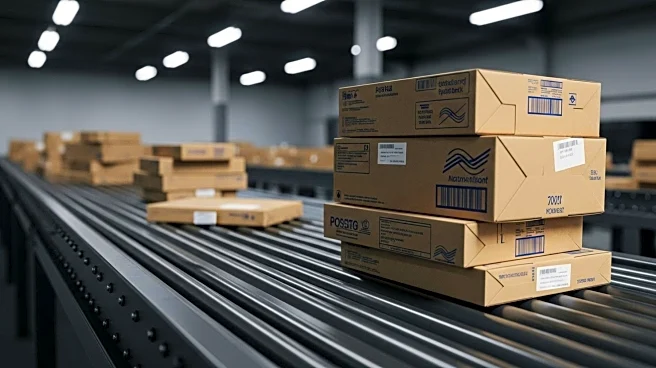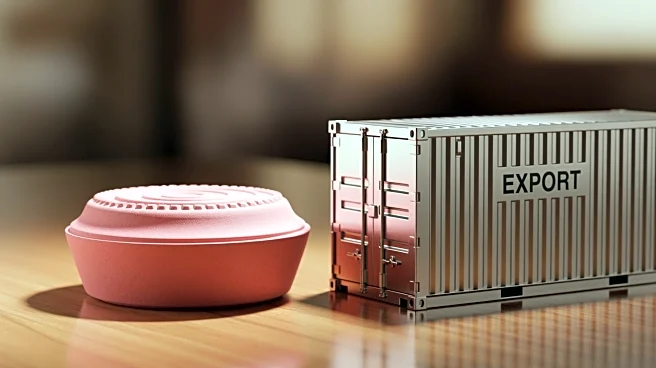What's Happening?
The Trump administration's decision to end a tariff exemption for low-cost imports has led to a significant decrease in postal traffic to the United States. According to the Universal Postal Union (UPU), postal traffic into the U.S. has dropped by more than 80% following the elimination of the 'de minimis' exemption, which previously allowed parcels valued at $800 or less to enter the country without customs charges. The new rules, implemented on August 29, 2025, require transportation carriers or U.S. Customs and Border Protection-approved parties to collect and remit customs duties. This change has caused major operational disruptions, as many airlines and carriers are unwilling or unable to collect these duties, and foreign postal operators have not established necessary links with CBP-qualified companies. The UPU has reported that 88 postal operators have suspended some or all services to the U.S. until a solution is found.
Why It's Important?
The removal of the tariff exemption is significant as it impacts international trade and postal services, affecting both foreign businesses and U.S. consumers. The exemption, in place since 1938, was seen as a loophole that allowed foreign businesses to evade tariffs and facilitated the smuggling of drugs into the U.S. The new policy aims to close this loophole, potentially increasing customs revenue and enhancing border security. However, the abrupt change has disrupted global postal operations, affecting nearly all of the UPU's 192 member countries. This disruption could lead to increased costs for consumers and businesses, as parcels now require customs clearance and are subject to tariffs ranging from 10% to 50%. The policy change reflects the administration's broader trade strategy to protect U.S. industries from unfair competition.
What's Next?
The UPU and its member countries are working to implement measures that will allow postal operators to calculate and collect duties on U.S.-bound parcels. The organization has expressed concerns to U.S. Secretary of State Marco Rubio about the lack of time and guidance provided to comply with the new procedures. As the situation develops, foreign postal services may need to establish connections with CBP-qualified companies to resume normal operations. The U.S. administration may also face pressure to provide clearer guidelines and support to mitigate the impact on international postal services and trade.










